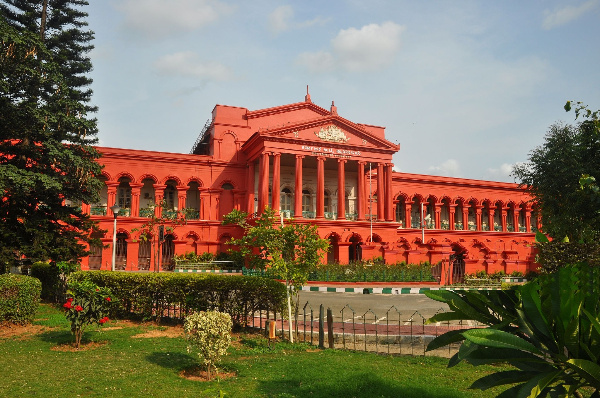Karnataka High Court Rules That the Chairman and Vice Chairman’s Reorganization of the Karnataka State Bar Council’s Committees is Invalid.

The Karnataka High Court has ruled that the authority used by the Chairman and Vice Chairman of the Karnataka State Bar Council to reorganize the council’s committees is not legally valid. The Court annulled the reorganization of several committees by the Karnataka State Bar Council (KSBC), stating that the actions of the Chairman and Vice Chairman did not comply with the Karnataka State Bar Council (Election of Chairman and Vice-Chairman) Rules, 1978. The Petitioners, who are elected members of the KSBC, contested the reorganization. Justice Hemant Chandangoudar, in a Single Bench, stated, “Thus, the actions taken by respondents No. 2 and 3 to reorganize the committees, against the Karnataka State Bar Council (Election of Chairman and Vice-Chairman) Rules, 1978, are not legally valid.”
Senior Advocate Aruna Shyam M. represented the Petitioners, while Senior Advocate D.R. Ravishankar represented the Respondents. The Petitioners claimed that the committee reorganization was done without following the Rules established under Section 15 of the Advocates Act, 1961. They pointed out that the Rules required committees to be reorganized through elections among council members by ballot. They also noted that the Bar Council of India had extended the terms of current office holders to complete the verification of KSBC members and stated that there should be no changes in office holders during this extended period. The Respondents contended that the Chairman had the authority to reorganize the committees based on a unanimous resolution. They also mentioned that the Petitioners were appointed to various committees using the same process and that the reorganization was lawful.
The High Court also mentioned the case of Home Secy, U.T. of Chandigarh v. Darshjit Singh Grewal (1993), where the Supreme Court emphasized that rules and regulations must be followed by the relevant authority. The Court stated, “When the rules outline how committees should be formed, the respondents cannot ignore these rules and create committees in a way that violates them. The recent reconstitution is one-sided and goes against the democratic principles of how committees should be formed, as stated in the Rules of 1978.” As a result, the Court concluded, “The previous appointments of the petitioners to the committees by respondent No. 2 do not justify the reconstitution that breaks the established rules. Allowing this would create a precedent that weakens the mandatory nature of the rules for forming committees and could make the regulatory framework ineffective. Rules created under legal authority are designed to promote transparency, consistency, and fairness in governance, and any failure to follow them undermines their legal importance and democratic purpose.” Therefore, the High Court approved the Writ Petition.
Cause Title: Rajanna R & Ors. v. Karnataka State Bar Council & Ors. (Neutral Citation: 2024:KHC:45257)
Appearance:
Petitioners: Senior Advocate Aruna Shyam M.; Advocate Goutham A.R.
Respondents: Senior Advocate D.R. Ravishankar; Advocate Nataraj G.









